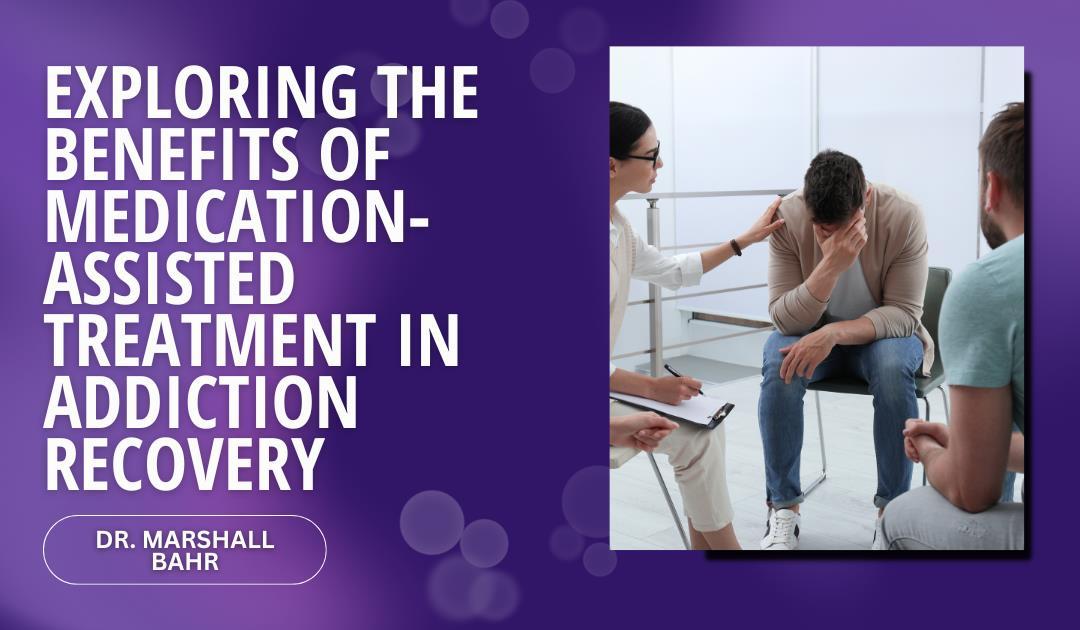Exploring the Benefits of Medication-Assisted Treatment in Addiction Recovery
by drmarshallbahr | Dec 9, 2024 | Dr. Marshall Bahr, Addiction Medicine, Healthcare

Medication-Assisted Treatment (MAT) is a transformative approach to addiction recovery that combines medications with counseling and behavioral therapies. It has become a cornerstone in treating opioid and alcohol use disorders, providing individuals with the tools to manage their conditions effectively and rebuild their lives. By addressing both the physical and psychological aspects of addiction, MAT offers a comprehensive path to recovery that improves outcomes and fosters long-term sobriety.
One of the primary benefits of MAT is its ability to reduce withdrawal symptoms and cravings, which are significant barriers to recovery. Medications like methadone, buprenorphine, and naltrexone help stabilize brain chemistry and prevent the intense discomfort associated with withdrawal. This stabilization allows individuals to focus on recovery without the constant struggle against physical urges, increasing their chances of staying in treatment.
MAT also plays a crucial role in reducing the risk of relapse, which is a common challenge in addiction recovery. By mitigating cravings, medications decrease the likelihood of individuals returning to substance use. Studies have shown that MAT can cut relapse rates significantly, making it a highly effective tool in maintaining long-term sobriety. Additionally, it lowers the risk of overdose, a critical concern for those recovering from opioid addiction.
Beyond its physical benefits, MAT addresses the psychological components of addiction through integrated counseling and behavioral therapies. These therapies help individuals understand the root causes of their substance use, develop coping strategies, and build healthier habits. The combination
of medication and therapy creates a holistic treatment plan tailored to the individual’s needs, improving the likelihood of successful recovery.
MAT is particularly effective in reducing the stigma surrounding addiction. By framing addiction as a medical condition that requires treatment, MAT helps shift public perception away from blame and judgment. Patients receiving MAT are often better able to reintegrate into society, pursue education and employment, and rebuild relationships. This societal reintegration reinforces the understanding that recovery is achievable and that those battling addiction deserve support and respect.
Another significant advantage of MAT is its scalability and accessibility. With the rise of telemedicine, MAT can be delivered remotely, reaching individuals in rural or underserved areas. Virtual appointments for medication management and counseling reduce the need for frequent travel, making treatment more convenient and accessible. This increased accessibility ensures that more individuals have the opportunity to benefit from evidence-based care.
Critics of MAT often argue that it replaces one substance with another. However, this view overlooks the critical distinction between dependence and addiction. MAT medications are carefully prescribed and monitored to ensure they support recovery without fostering harmful behaviors. The goal is to provide a safe and controlled environment for healing, allowing individuals to regain control of their lives.
The long-term outcomes of MAT are overwhelmingly positive. Patients receiving MAT are more likely to stay in treatment, achieve sustained recovery, and improve their overall quality of life. They are also less likely to engage in criminal activity or contract infectious diseases associated with substance use, such as HIV or hepatitis C. These broader societal benefits underscore the value of MAT as both an individual and public health solution.
In the fight against addiction, MAT represents a beacon of hope. Its ability to address the multifaceted nature of addiction makes it an essential component of modern recovery programs. By combining medication with counseling and support, MAT empowers individuals to overcome the challenges of addiction and build healthier, more fulfilling lives.
